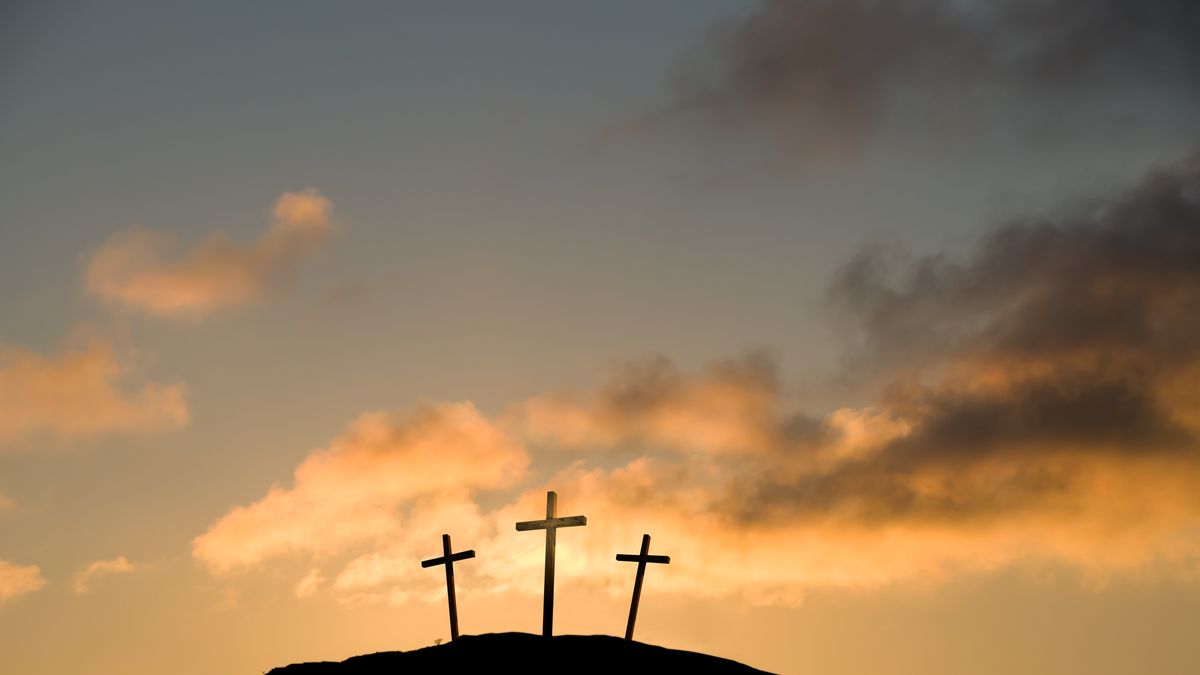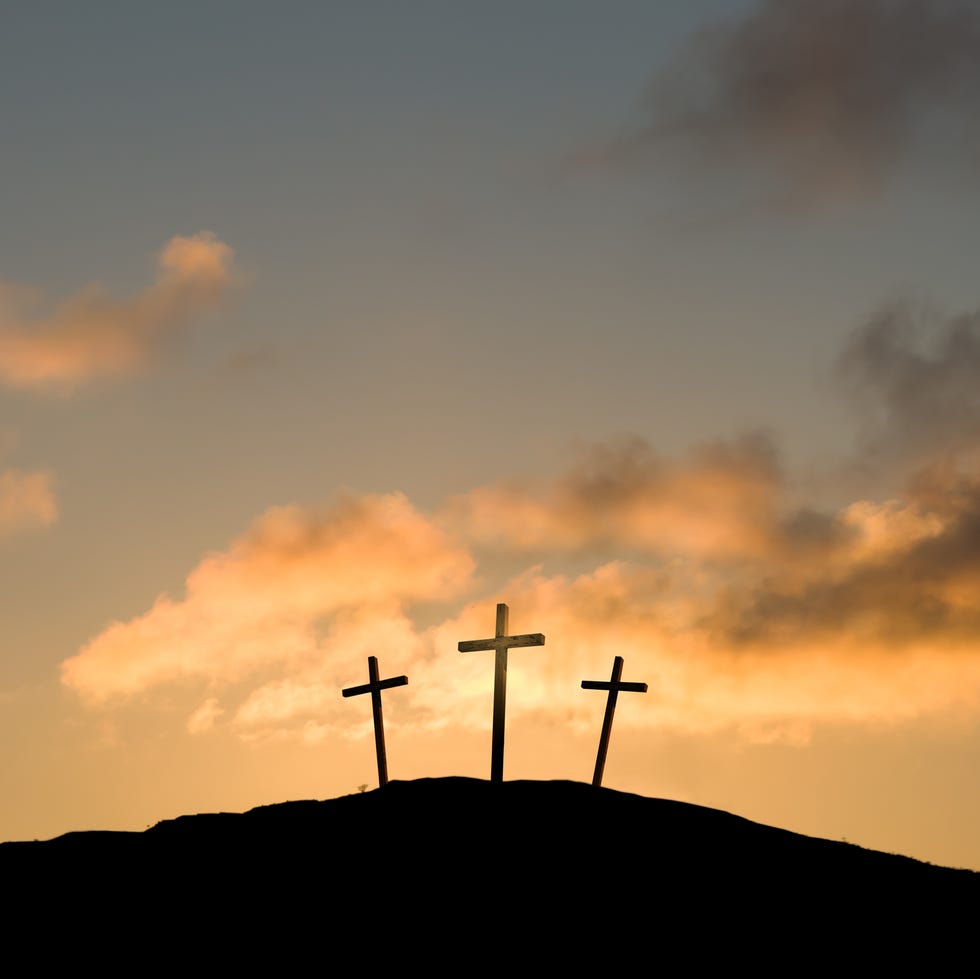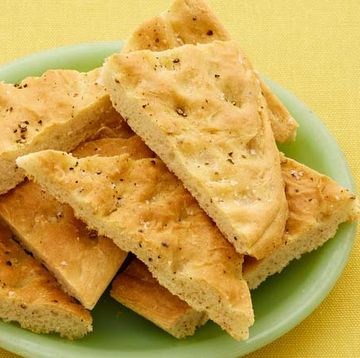Good Friday may be one of the many holidays that occurs during Holy Week (along with Easter, Ash Wednesday, and Palm Sunday), but it also holds much historical and religious significance on its own! Those who celebrate may be quick to jump right into Easter brunch planning, but Good Friday should definitely not be overlooked! The spring season simply wouldn't be the same without it, and here's why.
In contrast to Easter Sunday, Good Friday is a somber, more meaningful time for Christians to pause and reflect. After all, Good Friday holds an abundance of religious history and significance in the Christian faith. It honors the crucifixion of Jesus Christ, and centers around the idea that his death took place at Calvary. At its core, Good Friday is a day to reflect what Christ has done for his followers through prayers, fasting, and spiritual observance, making it a peaceful experience for those who participate.
Looking to learn more about the meaning of Good Friday? Here's everything you need to know, including when it is in 2024, where the name comes from, and why it's observed.
Why is it called Good Friday?
You might be wondering why Good Friday is in fact considered "good," when it's such a somber day! For one, Good Friday honors the day when Christ made the ultimate sacrifice and "as terrible as that day was, it had to happen for us to receive the joy of Easter," according to Christianity.com. Some people also claim that Good Friday got its name from the original term, "God's Friday." You might also hear the Christian holiday referred to as Holy Friday, Great Friday, or Black Friday.
When is Good Friday in 2024?
Good Friday is one of those holidays that never has the same calendar date every year. Just like how Easter's date changes every year, so does Good Friday's. In fact, Good Friday always lands on the Friday right before Easter. And since Easter consistently falls on the first Sunday after the Paschal Full Moon, the date is always changing. This year, Easter falls on Sunday, March 31, so that means that Good Friday falls on Friday, March 29, 2024.
What does the Bible say about Good Friday?
There are actually a few different references to Good Friday throughout the Bible! The day in general is meant to inspire a time of reflection, so a good way to do that would be to mediate on related Scripture—whether that be with your family or during your alone time!
Here are just a few of the related verses throughout the Bible that can apply to Good Friday:
- John 3:16-17: "For God so loved the world, that he gave his only Son, that whoever believes in him should not perish but have eternal life. For God did not send his Son into the world to condemn the world, but in order that the world might be saved through him."
- 1 Peter 2:24: "He himself bore our sins in his body on the tree, that we might die to sin and live to righteousness. By his wounds you have been healed. "
- Isaiah 53:5: "But he was pierced for our transgressions; he was crushed for our iniquities; upon him was the chastisement that brought us peace, and with his wounds we are healed."
- Romans 8:32: "He who did not spare His own Son, but delivered Him up for us all, how shall He not with Him also freely give us all things?"
- 1 John 4:10-11: "In this is love, not that we have loved God but that he loved us and sent his Son to be the propitiation for our sins. Beloved, if God so loved us, we also ought to love one another."
How is Good Friday observed?
Again, the history of Good Friday is quite somber, so the ways in which Christians observe it reflects that. Most Christians observe Good Friday by praying and fasting. Some partake in a stricter fast while others do a partial fast, opting not to eat meat. Although most people are at work on Good Friday, as it's not a federal holiday, some participants attend special church services in observance of the holiday. These services often feature accounts on Christ's passion and crucification, and take place on Friday evening.
What is OK to eat on Good Friday?
Like many holidays around the world, there's a crucial dietary component to Good Friday. Unlike Christmas, meat will not be on the menu on Good Friday, as the tradition commands a fish-centric diet. The reason for this is that Jesus sacrificed his flesh on the day of his crucifixion, and therefore any flesh-like meat should be avoided on the day of commemoration. Whether you abstain from meat completely with vegetarian Easter recipes or opt for air fryer fish or honey-soy salmon, there are plenty of dishes to eat on Good Friday. It's also tradition to bake and eat hot cross buns on Good Friday, as English folklore says that hot cross buns baked on this day would never spoil throughout the year.
Josiah Soto is the assistant editor of news and social for The Pioneer Woman. He helps manage the website’s social channels, in addition to writing high-performing news and entertainment content daily.













